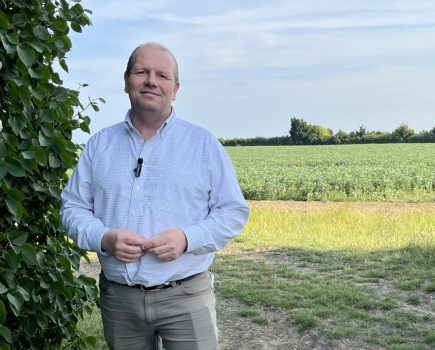Farming has received bad press for as long as I can remember. A few weeks ago, a press release promoting a new report on the state of Britain’s hedgehogs caught my eye. Published jointly by the British Hedgehog Preservation Society and People’s Trust for Endangered Species, the headline finding was that hedgehogs in rural areas are in severe decline, with their numbers plummeting by half since the turn of the millennium.
Now everyone loves a hedgehog, especially farmers as we all know they’re partial to fat juicy slugs. So I was surprised to read the report pointed its finger at agriculture as being one of the major reasons for the decline of our prickly little friend in the countryside. Funnily enough the very thing we all know is most likely responsible didn’t even get a mention. It must therefore be a little-known fact outside of countryside native circles that hedgehogs don’t happily co-exist with badgers.
The plight of the hedgehog was picked up by mass media and while farmers pleaded their innocence of the crime on Twitter, pointing out all the environmental good they do, it fell on deaf ears. No one wanted to know.

Hedgehog numbers are plummeting in rural areas and farmers get the blame.
Now as far as I can see we have two options – shrug our shoulders and put it down to ‘farmer bashing’ or be proactive and find a voice. Agriculture UK needs to take responsibility for its PR, especially in this digital age where information and misinformation are freely available, and many people can’t distinguish between the two. But the need to start professionally communicating with people runs far deeper, they are after all the industry’s customers – albeit indirectly.
A lot of the subjects surrounding agriculture are emotive – bees, baby calves, pesticides, genetics, Mrs Tiggywinkles – and around many of these subjects there needs to be open channels of communication and a respectful hearing of views. The Oxford Farming Conference debate about the future of meat eating, between George Monbiot and Gareth Wyn Jones, is exactly the sort of conversation that should happen more widely, with a mutual respect for very opposing views. Only in this way will the common ground be sought, bridges built and an acceptable way forward found.
Campaigns to influence public perception are professionally run and well-funded. Social media is an enormously powerful vehicle and is effectively used by many NGOs with an axe to grind, and more cynically, as a way to keep the funds rolling in from a fearful public. After all, how will crops be pollinated when we kill all the bees? It’s a brave politician that ignores the public, just look at the Brexit effect, where few of the politicians who are known to oppose it have the audacity to raise their head above the parapet to express their true belief and ask if it really is the best thing for the country. Brave politicians seem to be a rare breed these days.
The debate over neonics and glyphosate has really brought home that it’s no longer science that drives regulation, it’s public perception. Ask most people about glyphosate and the instant response will be that it causes cancer – that’s what we’re up against. As a highly regulated industry, this is something that we need to be bothered about and the fact that Mr Gove will support a total ban on neonics rather proves the fact that science has become irrelevant to policy makers.
The big question is how does agriculture UK find it’s voice – should it by building on existing platforms or creating new ones? The one body that should truly represent all farmers in all sectors is the AHDB and, already part of the levy-body’s remit is a commitment to raise awareness about where food comes from. But should it broaden further or is it up to every one of us to tell our own stories and engage, educate, take on board peoples concerns and be more open to change?
Connecting with our customers is possibly the biggest challenge facing our industry and is one we can’t afford to fail. There’s a disconnect that’s growing and is constantly fuelled by media information that’s often presented in a skewed way. There’s so much innovation and environmental stewardship that is part and parcel to farming life that goes unnoticed – let’s find a better way to tell people.
Based in Ludlow, Shrops, CPM technical editor Lucy de la Pasture has worked as an agronomist. @Lucy_delaP




